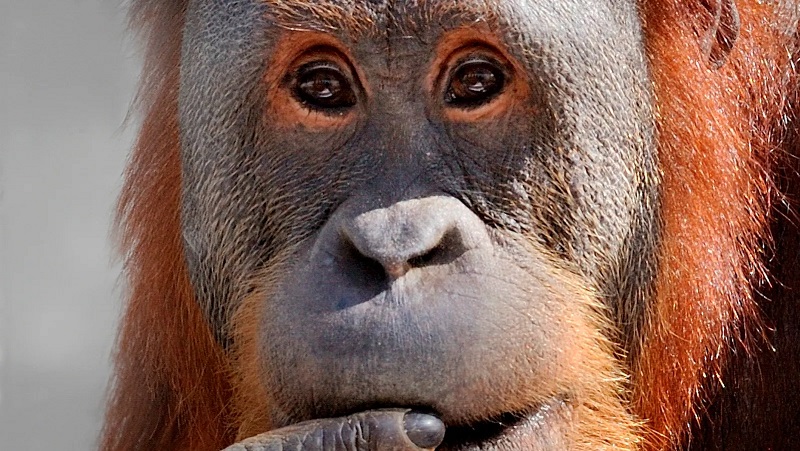Local News
Orangutan in the Indianapolis Zoo has a rare genetic illness

Indianapolis, Indiana – A Sumatran orangutan at the Indianapolis Zoo has been identified as having a rare genetic condition by researchers from the Indiana University School of Medicine.
A rare autosomal recessive condition known as alkaptonuria is brought on by a homogentisate 1,2-dioxygenase deficiency. The only sign in infants is standing urine that turns black. Although symptoms often worsen gradually over time, they might eventually cause persistent joint discomfort and reduced mobility.
Researchers claim that this is the first time the illness has been molecularly verified in a monkey other than a human.
Mila, an orangutan that is now 6 years old, was born in 2016 at the Indianapolis Zoo. Mila has displayed various symptoms in addition to having black pee that became brown when she stood up since birth. Mila was identified as having alkaptonuria by researchers from the IU School of Medicine Department of Medical and Molecular Genetics after they obtained and examined Mila’s DNA.
The findings of the research team were just released in the journal “Molecular Genetics and Metabolism.”
Researchers are unsure of the disease’s long-term effects on Mila because there have been numerous cases of it in non-human primates but no long-term investigations. Veterinarians don’t need to be concerned about any further potential problems, though, because of the diagnosis. “I think the best part about these results is we can de-escalate some of the other studies that might have been recommended. We don’t need to use anesthesia for imaging, obtain a kidney biopsy or have guests or veterinarians worried. Even though her urine does still turn dark after being out in the environment, fortunately, now it doesn’t need to be a problem that is alarming.” Theodore Wilson, MD, assistant professor of clinical medical and molecular genetics.





